As I’m sure you already know, there are plenty of ways to install software in Linux: using the package management system provided by your distribution (aptitude, yum, or zypper, to name a few examples), compiling from source (though somewhat rare these days, it was the only method available during the early days of Linux), or utilizing a low level tool such as dpkg or rpm with .deb and .rpm standalone, precompiled packages, respectively.
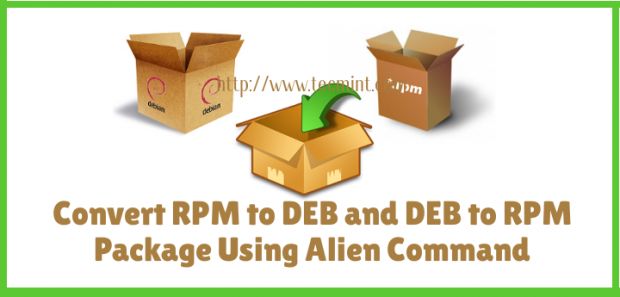
In this article we will introduce you to alien, a tool that converts between different Linux package formats, with .rpm to .deb (and vice versa) being the most common usage.
This tool, even when its author is no longer maintaining it and states in his website that alien will always probably remain in experimental status, can come in handy if you need a certain type of package but can only find that program in another package format.
For example, alien saved my day once when I was looking for a .deb driver for a inkjet printer and couldn’t find any – the manufacturer only provided a .rpm package. I installed alien, converted the package, and before long I was able to use my printer without issues.
That said, we must clarify that this utility should not be used to replace important system files and libraries since they are set up differently across distributions. Only use alien as a last resort if the suggested installation methods at the beginning of this article are out of the question for the required program.
Last but not least, we must note that even though we will use CentOS and Debian in this article, alien is also known to work in Slackware and even in Solaris, besides the first two distributions and their respective families.
Step 1: Installing Alien and Dependencies
To install alien in CentOS/RHEL 7, you will need to enable the EPEL and the Nux Dextop (yes, it’s Dextop – not Desktop) repositories, in that order:
# yum install epel-release # rpm --import http://li.nux.ro/download/nux/RPM-GPG-KEY-nux.ro
The latest version of the package that enables this repository is currently 0.5 (published on Aug. 10, 2015). You should check http://li.nux.ro/download/nux/dextop/el7/x86_64/ to see whether there’s a newer version before proceeding further:
# rpm -Uvh http://li.nux.ro/download/nux/dextop/el7/x86_64/nux-dextop-release-0-5.el7.nux.noarch.rpm
then do,
# yum update && yum install alien
In Fedora, you will only need to run the last command.
In Debian and derivatives, simply do:
# aptitude install alien
Step 2: Converting from .deb to .rpm Package
For this test we have chosen dateutils, which provides a set of date and time utilities to deal with large amounts of financial data. We will download the .deb package to our CentOS 7 box, convert it to .rpm and install it:

# cat /etc/centos-release # wget http://ftp.us.debian.org/debian/pool/main/d/dateutils/dateutils_0.3.1-1.1_amd64.deb # alien --to-rpm --scripts dateutils_0.3.1-1.1_amd64.deb

Important: (Please note how, by default, alien increases the version minor number of the target package. If you want to override this behavior, add the –keep-version flag).
If we try to install the package right away, we will run into a slight issue:
# rpm -Uvh dateutils-0.3.1-2.1.x86_64.rpm

To solve this issue, we will enable the epel-testing repository and install the rpmrebuild utility to edit the settings of the package to be rebuilt:
# yum --enablerepo=epel-testing install rpmrebuild
Then run,
# rpmrebuild -pe dateutils-0.3.1-2.1.x86_64.rpm
Which will open up your default text editor. Go to the %files section and delete the lines that refer to the directories mentioned in the error message, then save the file and exit:

When you exit the file you will be prompted to continue with the rebuild. If you choose Y, the file will be rebuilt into the specified directory (different than the current working directory):
# rpmrebuild –pe dateutils-0.3.1-2.1.x86_64.rpm

Now you can proceed to install the package and verify as usual:
# rpm -Uvh /root/rpmbuild/RPMS/x86_64/dateutils-0.3.1-2.1.x86_64.rpm # rpm -qa | grep dateutils

Finally, you can list the individual tools that were included with dateutils and alternatively check their respective man pages:
# ls -l /usr/bin | grep dateutils
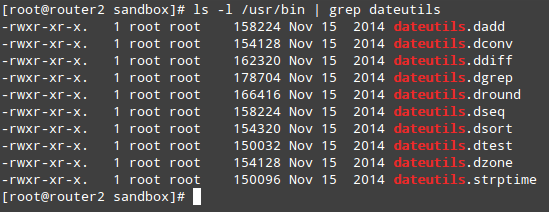
Step 3: Converting from .rpm to .deb Package
In this section we will illustrate how to convert from .rpm to .deb. In a 32-bit Debian Wheezy box, let’s download the .rpm package for the zsh shell from the CentOS 6 OS repository. Note that this shell is not available by default in Debian and derivatives.
# cat /etc/shells # lsb_release -a | tail -n 4
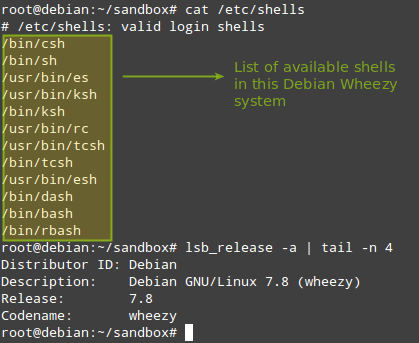
# wget http://mirror.centos.org/centos/6/os/i386/Packages/zsh-4.3.11-4.el6.centos.i686.rpm # alien --to-deb --scripts zsh-4.3.11-4.el6.centos.i686.rpm
You can safely disregard the messages about a missing signature:

After a few moments, the .deb file should have been generated and be ready to install:
# dpkg -i zsh_4.3.11-5_i386.deb

After the installation, you can verify that zsh is added to the list of valid shells:
# cat /etc/shells
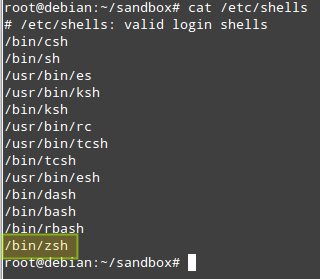
Summary
In this article we have explained how to convert from .rpm to .deb and vice versa to install packages as a last resort when such programs are not available in the repositories or as distributable source code. You will want to bookmark this article because all of us will need alien at one time or another.
Feel free to share your thoughts about this article using the form below.

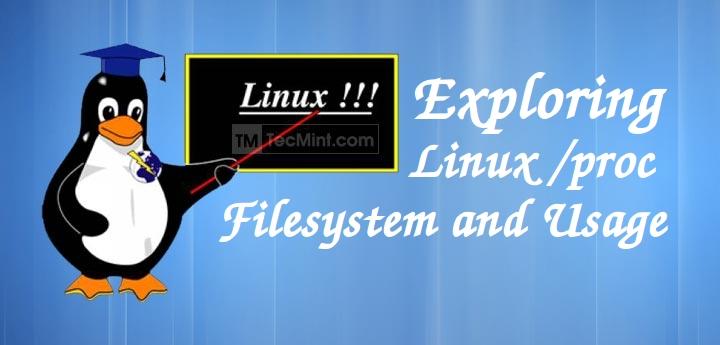
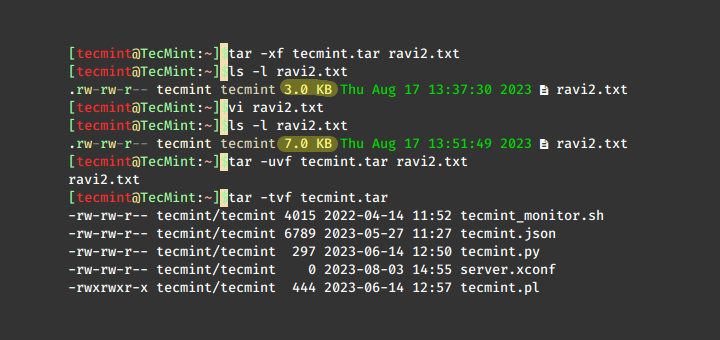

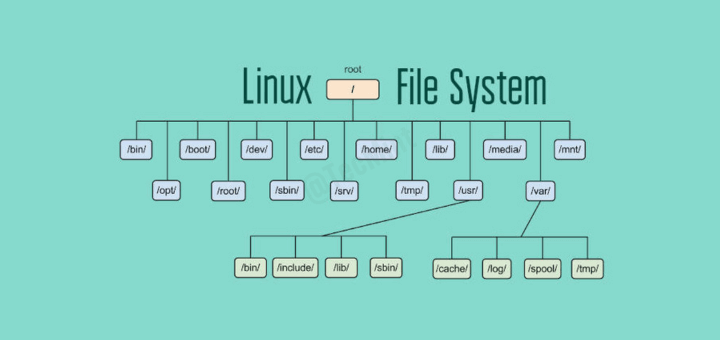

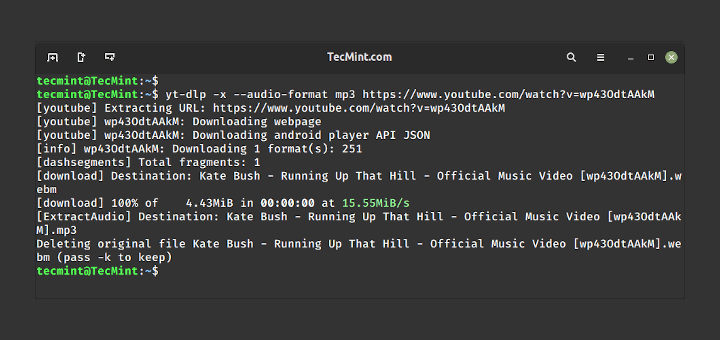
Hi fail with alien: command not found.
Hi,
Very useful article.
Thanks a lot
I get this error when converting from .deb to .rpm. error: Arch dependent binaries in noarch package
I get this error and it’s not anything found on search to solve it.
I already have rpmbuild on my fedora. what’s gonna happen if I don’t enable epel-testing and skip the “yum –enablerepo=epel-testing install rpmrebuild”?
I did exactly the steps, but the same error: Conflicts with filesystem-3.2-21.el7.x86_64
thank you
Hi,
Thanks a lot…
conversion is possible, but version of libraries are very important for installation of converted packages
@Jalal,
Yes – that is a possibility, but most libraries (if not all) that are required to run a program precompiled in a .deb or .rpm package are available for the other package format in the repositories. At least that has been my experience so far.
very good
but i cant do convert from deb to rpm :(
thanks
What program are you trying to convert? Please provide more details and we will do our best to help you.